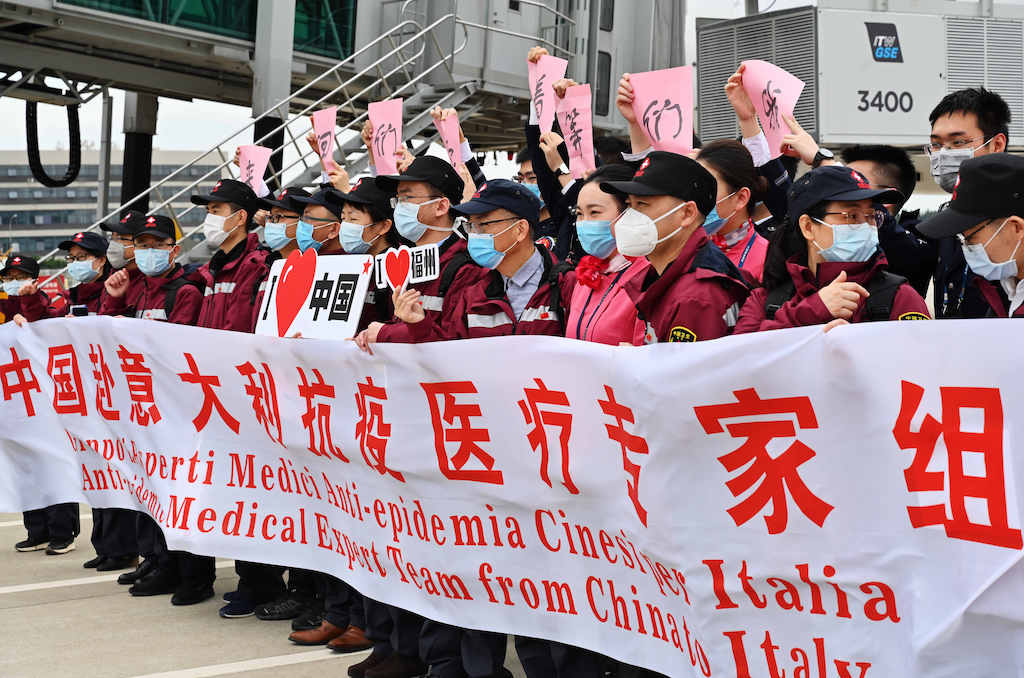China’s geopolitics, Europe and the loss of freedom
China is cunningly enhancing its geopolitical position in the wake of a pandemic that has spread from its territory. At the same time, the Western countries’ responses to the global crisis and to China’s rise have been woefully inadequate.

China is using its alleged success in tackling the coronavirus to enhance its geopolitical position and image as the next global leader.
In this context, let us look at the evolution of the geopolitical role of China over the last decades. After the calamitous events of Mao Zedong’s so-called Cultural Revolution, in the 1980s Deng Xiaoping launched modernization policies to overhaul China’s economy and build the foundations of an increasingly prosperous state. Chairman Deng grasped that only entrepreneurship and respect for private property rights could lift the country out of extreme poverty. The approach proved very successful. In foreign policy, his guiding philosophy was, “Hide your strength, bide your time.” This also was wise, as Beijing could gradually begin to engage with the outside world while developing its economy and stabilizing its internal political situation. Any sustainable geopolitical power must be backed by a well-performing economy. Mr. Deng’s philosophy served China well.
Under the present leadership, the country has returned to a more centralized internal setup and has become assertive on the outside.
Bungled response
Lately, China’s handling of the epidemic has been abundantly praised. Top officials of the World Health Organization commanded Beijing, ignoring the brutal practices of the regime and its disastrous attempts to hide the epidemic during its early phase. For the rulers of China, the paramount concern is the leadership role of the Communist party, not public health. Doctors who raised the alarm were jailed. When the scale of the epidemic was revealed, Wuhan, the capital city of Hubei province with a population of 11 million, was sealed off from the rest of China. However, air travel from Wuhan continued, especially to Europe. It was only later that the central government moved to contain the outbreak with a combination of effective lockdown and extreme surveillance measures.
European leaders who pose as liberal democrats have begun to look favorably at China’s regime.
Geopolitically, China might still emerge a winner from the crisis. Its soft power is on display and the regime’s ruthless effectiveness in handling COVID-19 found admirers worldwide. Instead of joining the chorus, Europe should assess the strengths and weaknesses of its response to the emergency. There is growing evidence that the European states that had assumed control over their healthcare structures have largely failed the stress test of the catastrophe.
Local responses to the pandemic have been better targeted and more effective than those generated in centralized systems. The important caveat is that the emphasis on local solutions does not mean closing borders. Countries should help one another.
French President Emmanuel Macron, who likes to grandstand as an icon of European collaboration, was the quickest to stop sending desperately needed medical supplies to other countries. Italy was left alone during the darkest days of the crisis – small wonder that Beijing, which airlifted some aid early on, has gained much goodwill there. It is astonishing how many European leaders who pose as liberal democrats have begun to look favorably at China’s regime and its intrusive methods. Simultaneously, they are increasingly critical toward the United States.
For some time already, there have been signs that globalization is retreating. A new period of political and economic fragmentation, with the U.S. on one side and China on the other, is setting in. China might come out on top – not because it has brilliantly responded to the pandemic and other challenges, but because democracies have been so inept in defense of individual freedom and the rule of law. The stability of the global system will be the next casualty.
